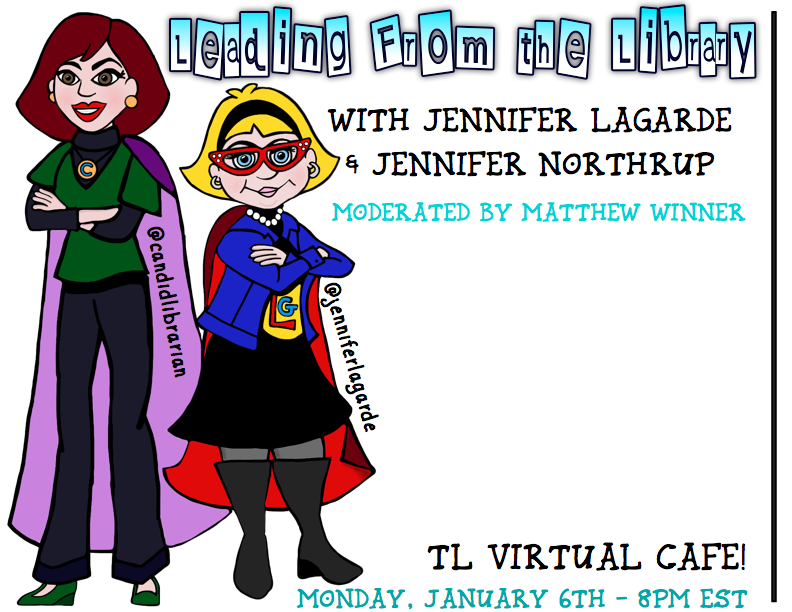Ways
for teacher-librarians to connect and share learning
Being
a teacher-librarian in this day and age is an exciting time. Gone are
the days where the teacher-librarian is isolated from other
teacher-librarians. There are so many online networking opportunities
to share and learn from one another so that the modern
teacher-librarian has a myriad of innovational teaching ideas at
his/her fingertips.
I
think one of the best places to connect and share with other
teacher-librarians is at http://www.teacherlibrarian.ning.com
.This website has over 7400 global members. There are twitter feeds,
blogs, videos, and discussions. It provides a real sense of a
learning “communing".
Another
helpful place to stay in touch with digital literacy lessons and
strategies is www.commonsensemedia.org/educators/curriculum
.What I like about this website are the examples and videos
pertaining to digital literacy. Information on everything from
cyberbullying, to digital citizenship, digital media & school,
internet safety & privacy and learning with technology is
available under the Educators section. This is a good reference to go
to when teaching students about digital literacy issues
eg.
digital citizenship licenced image courtesy of Common Sense Media.
I
also found this site to be very useful:
www.onlinecollege.org/2012/07/10/100-best-blogs-school-librarians/
This site is appropriately named 99 Best Blogs for School-Librarians.
I particularly liked #26 The Busy Librarian www.busylibrarian.com
This teacher-librarian has an active blog, and seems to blog every
day. The blog has pinterest, podcast, and book club information on
it. It is an interesting blog and as a future teacher-librarian,
following another teacher-librarians blog, such as this one, connects
me with a wealth of knowledge and ideas as well as an opportunity and
forum for me to share my ideas.
 |
| Image courtesy of The Busy Librarian |
Having
my own blog, is an excellent way for me to interact with the global
teacher-librarian community and is by far the best tool that is
currently available to stay connected digitally.
Strategies,
tools, resources and networks to implement and maintain my
exploration and development
I
think it's important as a teacher-librarian to not only connect with
other teacher-librarians online but also in person as well. To do
this I would be an active member of the BCTLA , www.bctf.ca/BCTLA
and attend the annual general meeting and other scheduled meetings so
that I could have a local human network of expertise to share with
and learn from. Although online networks are great to share resources
and learn from, there is nothing like the real human network of
interacting and connecting with people in person.
Nationwide,
the CLA, Canadian Library Association, offers more networking
opportunities through an online system called Listserv,where members
can share information and ideas. The CLA also provides a online
magazine called Feliciter, 6 times annually. This magazine is the
fist choice of library & information specialists and offers
another way to stay up to date with current issues.
I
would attend library conferences and workshops to further my
learning. I may choose online workshops and seminars through video
conferencing capabilities.
Twitter
is another essential tool to use to stay connected with other
teacher-librarians globally and what may be on their minds.
Pinterest
is a great resource that has grown in popularity in the last year
because of its ability to share visual images & ideas on what
other teacher-librarians are doing. There is no need to reinvent the
wheel in this day and age, so the more resources and ideas we can
share digitally, the more time we have to collaborate with teachers
and focus on other things.
Finally
another resource that I would use to continue learning about and
using technology in my teaching is www.freetech4teachers.com
This site is titled Free Technology for Teachers by Richard Byrne.
Richard seems to blog almost daily about videos, and topics relating
to teaching with technology. This blog provides teachers with free
websites and resources to use in their teaching.
Image
courtesy of Free Technology for Teachers














